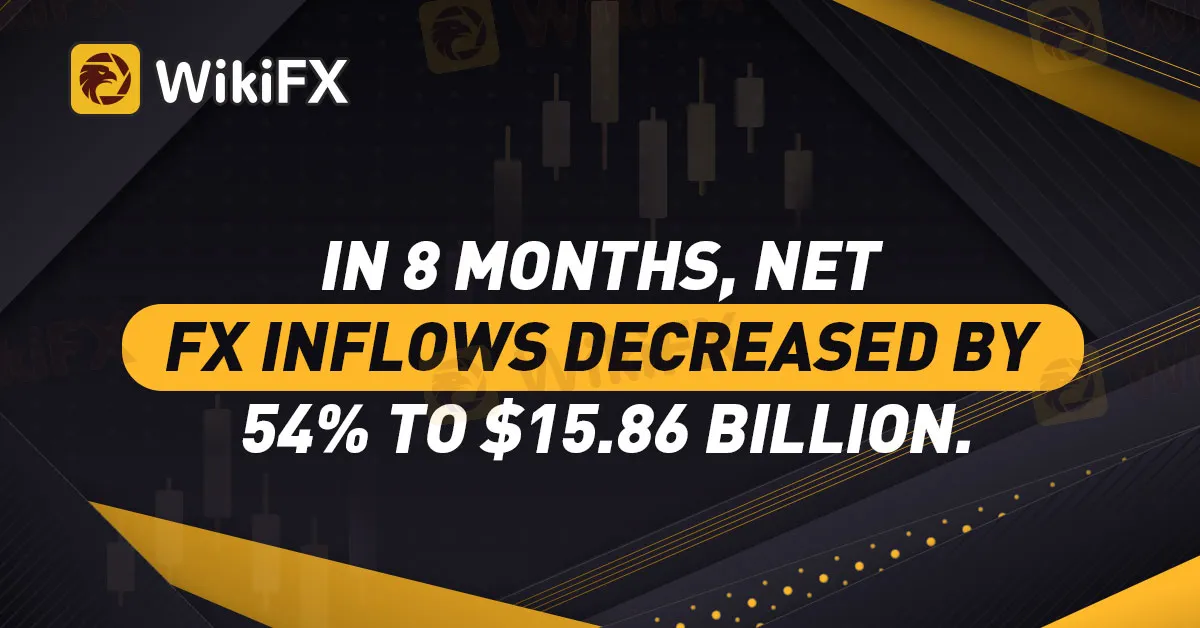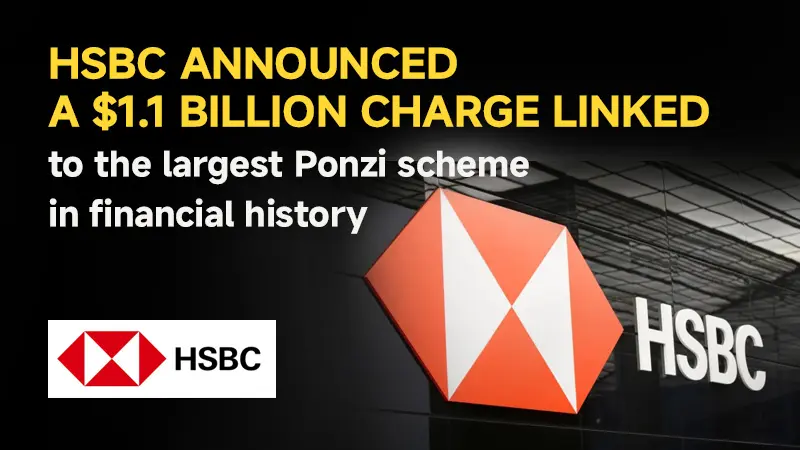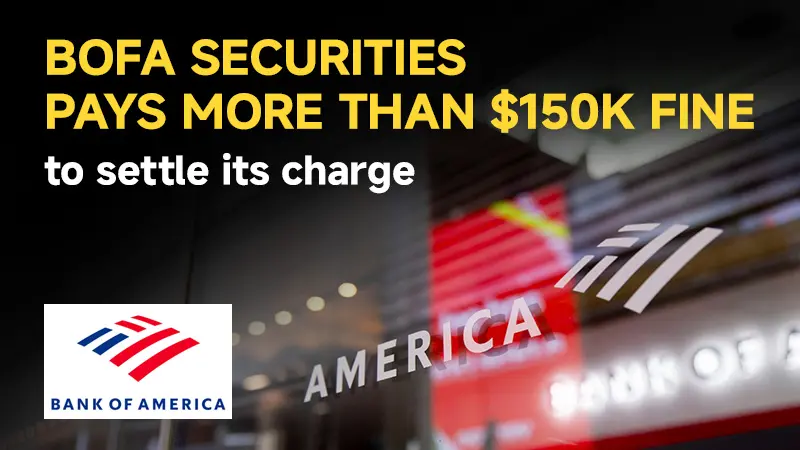简体中文
繁體中文
English
Pусский
日本語
ภาษาไทย
Tiếng Việt
Bahasa Indonesia
Español
हिन्दी
Filippiiniläinen
Français
Deutsch
Português
Türkçe
한국어
العربية
IN 8 MONTHS, NET FX INFLOWS DECREASED BY 54% TO $15.86 BILLION.
Abstract:In the eight months leading up to the end of August, net FX inflow to the economy decreased 54% YoY to $15.86 billion.

In the eight months leading up to the end of August, net FX inflow to the economy decreased 54% YoY to $15.86 billion.
The dip was caused by a 37% decrease in FX coming into the economy, which offset a 15.3% decrease in FX leaving the economy during same time.
Financial Vanguard's analysis of the Central Bank of Nigeria's (CBN) monthly economic reports revealed that the amount of foreign currency entering the economy fell to $37.89 billion in the eight months that ended in August of this year (8M'22) from $60.37 billion in the same period of 2021 (8M'21), a decrease of 37% YoY.
In a similar vein, the economy's foreign outflow decreased by 15.3% YoY to $22.02 billion in 8M'22 from $26.01 billion in 8M'21.
As a result, the economy's net foreign inflow decreased by 54% to $15.86 billion in 8M'22 from $34.38 billion in 8M'21.
However, the net inflow of foreign currency rose 92% month over month, from $1.64 billion in July to $3.16 billion in August of this year.
The total amount of foreign exchange that entered the economy in July 2022 was $5.22 billion and it climbed by 22.7% to $6.40 billion in July 2022. Similarly, the economy's net outflow of foreign currency decreased by 9.5% to $3.24 billion from $3.58 billion in the previous month.
However, the net inflow of foreign currency through the CBN was negative. The CBN said that in August 2022, “a net inflow of $0.34 billion was recorded through the Bank, compared to a net outflow of $0.88 billion in the preceding month.”
Motor Insurance:
Why did insurers withdraw their proposed 50% rate increase from NAICOM?
Only 3 million of the 12 million vehicles have valid insurance, and the premium income reversed its growing trend in the second quarter of 22.
The National Insurance Commission (NAICOM) and insurance companies have changed their minds about implementing the planned 50% increase in premium for third party motor insurance due to concerns about the impact of inflationary pressure on Nigerians' disposable income, the sharp decline in premium in the second quarter and the prevalence of fake motor insurance.
For a very long time, the third-party motor insurance deductible was set at N5,000.
However, the Insurers in its meeting in June that the third-party motor insurance price would be revised 50% higher, to N7,500, starting in September.
The NAICOM and the CEOs of insurance companies make up the Insurers Committee.
In a press conference following the meeting, Mr. Segun Omosehin, vice chairman of the insurers committee's subcommittee on publicity and communication, stated: The regulator has adopted, in principle, the adoption of a third-party motor insurance in Nigeria. The increased tariff should go into effect in September.
Before making a final decision on the new price, the team, he continued, wishes to weigh the advantages and disadvantages while taking feedback and concerns.
The new premium has not started, though, two months after the planned implementation date.
An executive from NAICOM said that the current economic climate and growing inflation prevented the new rate from being implemented in September.
Even though the NAICOM Board's governing council recently authorized the new tariff and forwarded it to the Ministry of Finance.
Premium revenue is falling
The dramatic decrease in premium income from motor insurance in Q2'22 after three consecutive quarters of increase may have had an impact on NAICOM.
According to an analysis of NAICOM statistics, premium income from decreased by 36.4% quarter over quarter (QoQ) to N12.6 billion in Q2'22 from N19.8 billion in Q1'22.
This is from the growth seen in the three quarters prior, notably Q3'21, Q4'21, and Q1'22.
Motor insurance premium revenue increased by 51.6% in the third quarter of 21 to N13.16 billion from N8.74 billion. Premium income climbed by 6.4% to N14 billion from N13.16 billion in the fourth quarter of 21. Motor premium income increased by 41.4% to N19.8 billion in Q1 22 from N14 billion in Q4 21.
The estimated nine (9) million difference between the number of vehicles having valid insurance and the total number of vehicles on Nigerian roads discourages the implementation of the proposed rate increase.
Only three million of the 12 million vehicles on Nigerian roads had legitimate insurance, a situation that insurers blamed on Nigerians' persistent use of bogus motor insurance.
Insurance companies communicate
Immediate former Chairman of the Nigerian Insurers Association, NIA, Mr. Ganiu Musa, commented on the news by saying: “The number of uninsured vehicles against insured in Nigeria is highly disappointing with only three million insured out of 12 million traveling our roads.”
Under anonymity, another Chief Executive stated: Instead of developing policies that would drive motorists away from the insurance market, we should be taking steps to guarantee that more motorists plug into it. I think that any increase in the cost of a car insurance policy could help the phony insurance market grow, which would be to our detriment given the status of the economy.

Disclaimer:
The views in this article only represent the author's personal views, and do not constitute investment advice on this platform. This platform does not guarantee the accuracy, completeness and timeliness of the information in the article, and will not be liable for any loss caused by the use of or reliance on the information in the article.
Read more

Voices of the Golden Insight Award Jury | David Bily, Founder and CEO of Moneta Markets
WikiFX Golden Insight Award uniting industry forces to build a safe and healthy forex ecosystem, driving industry innovation and sustainable development, launches a new feature series — “Voices of the Golden Insight Awards Jury.” Through in-depth conversations with distinguished judges, this series explores the evolving landscape of the forex industry and the shared mission to promote innovation, ethics, and sustainability.

ASIC Launches Preliminary Investigation into Clime Australian Income Fund
The Australian Securities and Investments Commission (ASIC) has launched a preliminary investigation into the Clime Australian Income Fund, examining whether the Fund’s Target Market Determination (TMD) and Product Disclosure Statement (PDS) comply with Australian financial regulations. The investigation will also assess whether any breaches of the law have occurred in relation to the Fund’s investment activities.

HSBC announced a $1.1 billion charge linked to the largest Ponzi scheme in financial history
The British banking giant HSBC Holdings Plc has announced a potential $1.1 billion charge connected to the long-running Bernard Madoff Ponzi scheme, following a legal ruling in Luxembourg. The claim stems from Herald Fund, a European investment fund that sued HSBC over alleged losses related to the Madoff fraud.

BofA Securities pays more than $150K fine to settle its charge
BofA Securities, Inc. (BofAS) has agreed to pay a $155,000 fine and accept a censure from the Financial Industry Regulatory Authority (FINRA) after FINRA found multiple violations of market trading and supervisory rules.
WikiFX Broker
Latest News
MH Markets Review 2025: Trading Platforms, Pros and Cons
Octa FX in Pakistan: The Complete Guide to Local Payments, Regulation, and Support
Mekness Review: Traders Report Alleged Fund Scams & Account Blocks
INTERPOL, AFRIPOL Crack Down on Africa Terror Finance
Forex Scam Checker Philippines: Verify Brokers with WikiFX
D Prime to Exit Limassol Office Amid Doo Group Restructure
Fake Trading Platforms Are Spreading Fast Across Asia | How Investors Are Being Tricked
WikiFX Elites Club Committee Concludes Voting! Inaugural Lineup Officially Announced
eToro CopyTrader Expands to U.S. Investors
Is MH Markets Safe or a Scam? Regulation and Fund Security Explained
Currency Calculator



